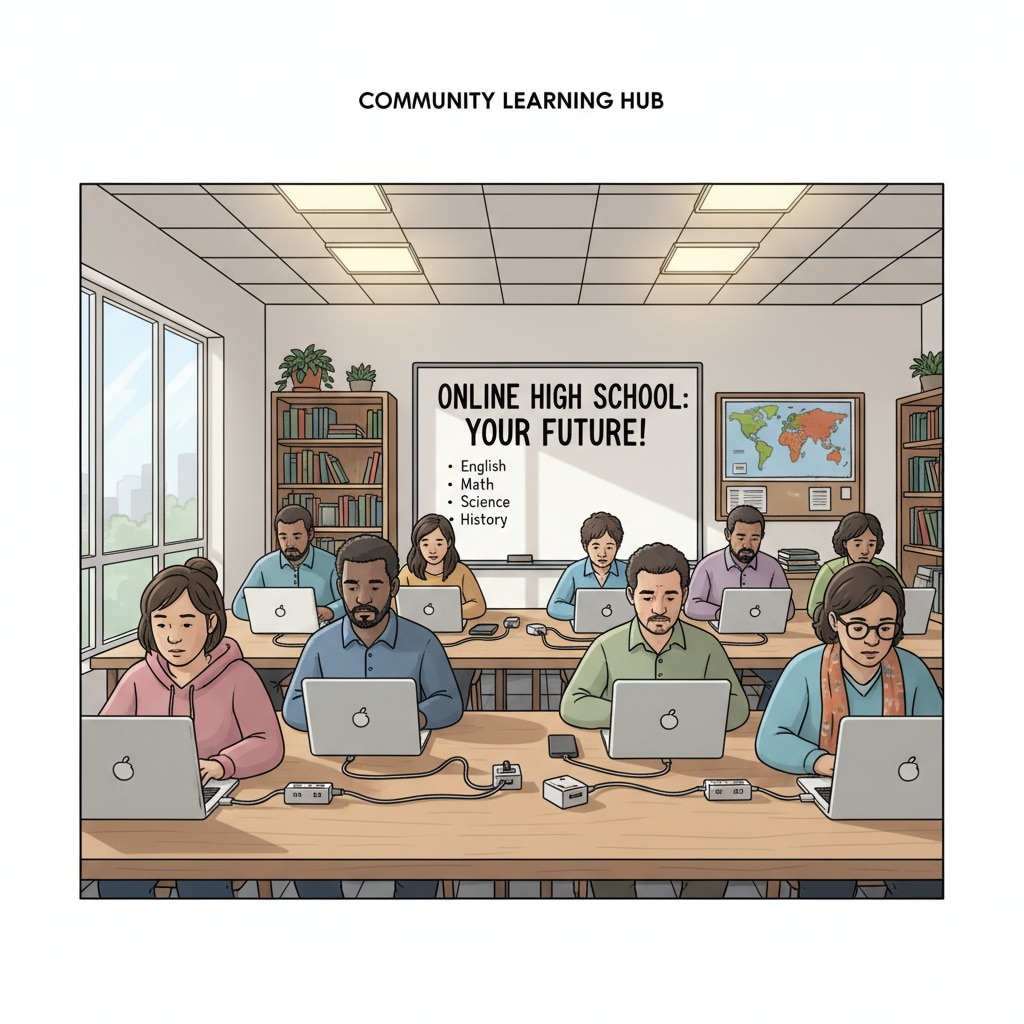For low-income adults who are dropouts, the journey to resume education can seem daunting. However, the advent of online high school has opened up new possibilities. Online high school offers a flexible and often more affordable alternative for those who once left their studies behind due to financial constraints.

The Hurdles Faced by Low-Income Adult Dropouts
Low-income adult dropouts encounter multiple obstacles on their path to re-enter education. Financial limitations top the list. Many cannot afford the costs associated with traditional high school education, including tuition, textbooks, and transportation. Moreover, work commitments and family responsibilities often make it difficult to attend regular classes. As a result, they may feel trapped in a cycle of limited opportunities. For example, a single parent working multiple jobs may not have the time or money to enroll in a brick-and-mortar high school. U.S. Department of Education’s student aid information
The Promise of Online High School
Online high school presents a ray of hope. It offers flexibility in terms of when and where to study. Students can log in from the comfort of their homes, fitting their studies around work and family. Additionally, it can be more cost-effective. There are no commuting expenses, and in many cases, digital textbooks are available at a lower cost. For instance, some online high schools provide all course materials electronically, reducing the need for expensive printed textbooks.

There are various online high school programs designed to meet the needs of different learners. Some are self-paced, allowing students to progress at their own speed, while others have structured schedules with live classes. This variety ensures that low-income adults can find a program that suits their circumstances. National Center for Education Statistics on adult education
To make online high school more accessible, there are also financial support options. Some programs offer scholarships specifically for low-income students. These scholarships can cover a significant portion of the tuition. In addition, there are grants available from government agencies and non-profit organizations. By exploring these opportunities, low-income adults can overcome the financial barriers to obtaining their high school diploma.
Looking at success stories, many low-income adults have already benefited from online high school. They have gone on to further their education, secure better jobs, and improve their quality of life. These stories serve as an inspiration for others who are considering taking the plunge and restarting their educational journey.
Readability guidance: This article uses short paragraphs to make the information more digestible. The lists and examples help to illustrate key points. Transition words like “however,” “moreover,” and “for example” are used to make the flow of the text smoother. The focus is on providing practical information for low-income adult dropouts interested in online high school education.


